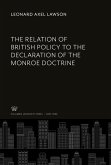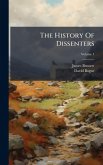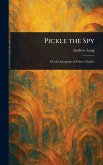"The Declaration of Indulgence, 1672" examines King Charles II's attempt to broaden religious freedom in England through royal decree. This study delves into the political and religious climate of the era, exploring the motivations behind the declaration, its contents, and its immediate impact on various religious groups. The work analyzes the intense opposition the declaration faced from Parliament, which ultimately led to its withdrawal. This historical document offers valuable insights into the complex interplay between the monarchy, Parliament, and religious factions during a pivotal period in English history, shedding light on the ongoing struggle for religious tolerance and the shaping of England's religious landscape. This work has been selected by scholars as being culturally important, and is part of the knowledge base of civilization as we know it. This work was reproduced from the original artifact, and remains as true to the original work as possible. Therefore, you will see the original copyright references, library stamps (as most of these works have been housed in our most important libraries around the world), and other notations in the work. This work is in the public domain in the United States of America, and possibly other nations. Within the United States, you may freely copy and distribute this work, as no entity (individual or corporate) has a copyright on the body of the work. As a reproduction of a historical artifact, this work may contain missing or blurred pages, poor pictures, errant marks, etc. Scholars believe, and we concur, that this work is important enough to be preserved, reproduced, and made generally available to the public. We appreciate your support of the preservation process, and thank you for being an important part of keeping this knowledge alive and relevant.
Bitte wählen Sie Ihr Anliegen aus.
Rechnungen
Retourenschein anfordern
Bestellstatus
Storno








